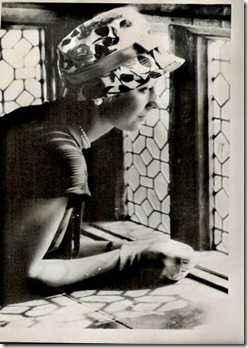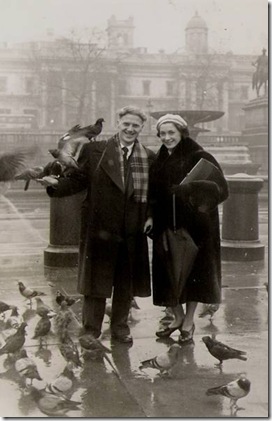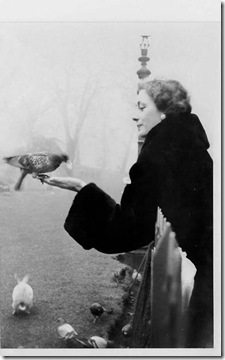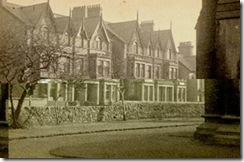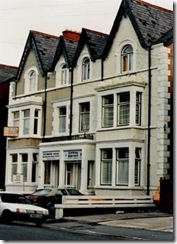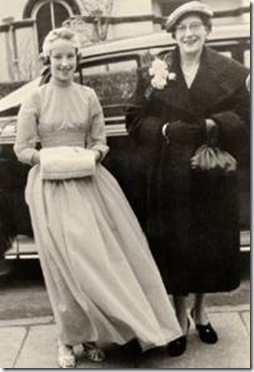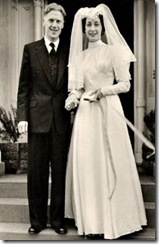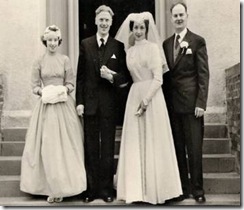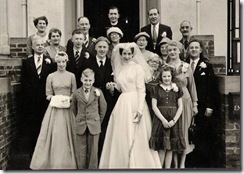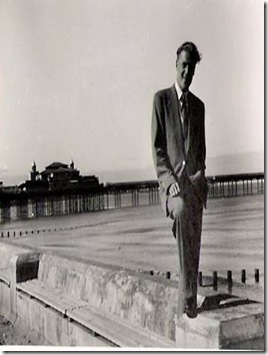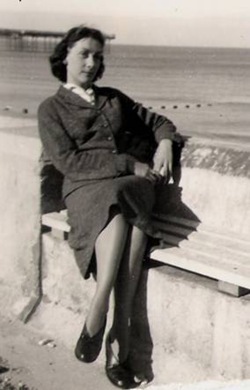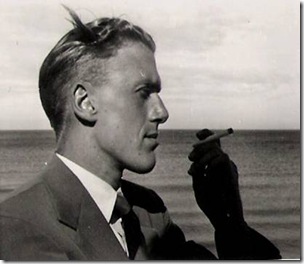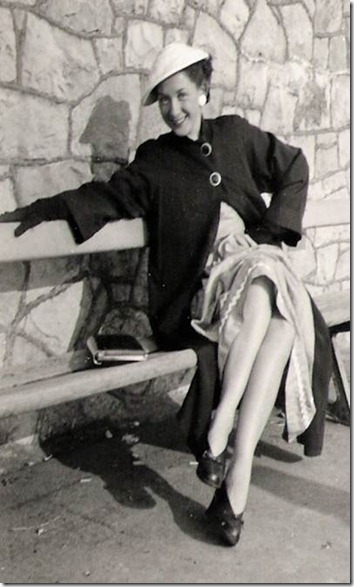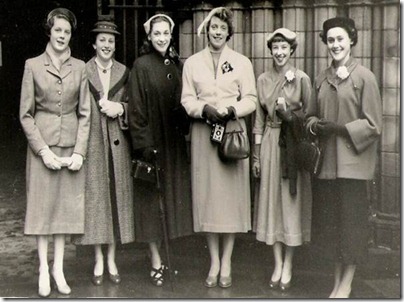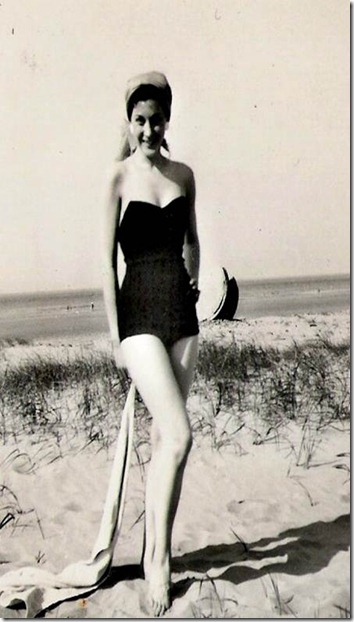Volume 2 – A new life begins – chapter 6 – Working for Chance – Pilkington Ltd – part 1 - I become a security officer – post 58
When I began work at Chance-Pilkington Ltd the new factory was just a shell, we operated from a hut which was the builder’s office. There were no official duties; all we had to do was keep an eye on the site, which was way out in the country. During the day there was at least the activity of the builders, but at night you were the only person there, and it was quite spooky to patrol around with a Tilly lamp in your hand, and a police truncheon in your pocket. After a few weeks staff began to appear and the manufacturing process began, those of us who were on security finally had some work to do. The quiet time was over and I was not sorry about that, the weeks of peace and quiet had been a drag, with only one incident I can recall during that time.
It was late afternoon on a weekend and I had been checking around the site, when I walked back to my temporary office I came face to face with a group of young men. There were about five of them, all fit looking chaps, who had decided they would look over the new factory they had heard about. Marching up to them I reached in my pocket and pulled out my note book, and planting myself in front of them I said: “Right, I’ve caught you, give me your names.” My appearance must have come as quite a shock to them, which is why they all looked alarmed and explained that they had not meant any harm, they were just having a look at the site. Telling them that they had no business being there and were trespassing on private property, I still insisted that I would take their names and addresses. I would tell their story to the man in charge, and if they were lucky he would take no further action against them. Off they slunk with their tails well and truly between their legs, and I was able to heave a sigh of relief. I had pulled off a big bluff because if they had turned nasty I would have had no chance against so many; anyway had it come to a physical confrontation I was not fit enough to take on even one man.
When the factory began to operate the main function was to be the continuous manufacture of lenses of various types, plus other products of glass. The whole process was new and highly secret, the method and equipment being obtained from the biggest manufacturer in the world, Corning Co Ltd of America, key people from both Pilkington’s and Chance’s had been sent to the USA to train, and when the first production line was set up, some of the American staff had come over to help get it started. Basically it consisted of a furnace on a mezzanine floor, which produced glass that was fed down a tube to the main floor below, there a complex machine fed gobs of molten glass into a rotary press where the lenses were stamped out before being fed into a lehr where they gradually cooled as they moved along a conveyor belt. This system would and did produce an enormous number of items a day, and it was continuous; eventually it was joined by three similar lines that did the same. Gradually the factory grew as other processes were added, and it continued to do so long after I had moved on.
It would seem very generous of the Americans to give all this new technology to the English, but it did not come free of charge. Pilkington’s had developed some new processes of their own, and they offered one of these in exchange, the Americans were benefiting equally as much as we were from the exchange. What we gave to Corning was ‘Float Glass’ which was a method of producing distortion free sheet glass. Until this new procedure came along sheet glass had been extruded from a furnace and this caused distortions and imperfections, which could be seen in most window glass. If distortion free glass was needed, for shop fronts, and that sort of thing, it had to be plate glass, which was cut from a suitably sized block, then ground and polished. This was as you can imagine a slow and costly way of producing distortion free glass, so this new process was a fantastic step forward being both quick and relatively cheap. For the technically minded I should explain that float glass was exactly what the name implied, it was made by floating molten glass on a bed of molten metal. This allowed the surface of the glass to remain fire finished and optically clear, the thickness and the size of the glass produced depended on both the temperature and the density of the metal alloy being used. The Americans were more than willing to exchange their mass production methods for our new and scientifically advanced method of making window glass.
When the first furnace fired up four shifts were created to run it and the related production line; there was a morning shift which worked from 7am till 3pm for three days, an afternoon shift which was from 3pm to 11pm, and the night shift from 11pm to 7am. After the morning shift had done their three, they had a break of 24 hours before commencing on the afternoon shift. The evening and night shifts got a 48 hour break after their three turns, so the roster included a fourth shift to fill the gaps. In addition there were day workers who performed other functions, and of course there were the usual clerical staff performing the functions they always have done. Each shift was assigned a security man who worked with them, got to know them, and looked after them, dealing with all and any problem that arose. This was my function on the shift with which I worked, but when on the day shifts there would be other duties to perform not related to the shift workers.
During normal office hours I got to know the senior man Dick Jones, though he often disappeared when he felt like it, and I never really saw him do anything useful; I suppose you could say that he was the brains of the outfit and did not need to do any work of a physical nature. The other security men I only met briefly when the shifts were changing over, they were all older men than myself, and not inclined to make friends. One was a typical type of old time bobby who did as little as possible and was expert at keeping his head down, he had his job to do and I had mine, so we had little effect on each other. Then there was a chap named Glyn Heppenstall who was a strange sort of fellow with a pencil moustache; he was always smoking and used a short cigarette holder. Again I had little to do with him and so can say we did not have an influence on each other at all.
The final man we had was a big ugly bloke who had come from a security job on one of the atomic power stations up North. He was not the sort of man you would want to make friends with, and I heard that he did not get on well with the men on his shift at all. I believe he was something of a bully, and was not all that sharp or so it appeared. He would do nothing to help anyone, which of course resulted in a similar response; I remember one day when he was given a driving job and being unfamiliar with the vehicle put it in the wrong gear and ran it into the wall near to where it was parked. This only happened because no one would tell him about this particular vehicle, and why should they when he was so obnoxious to all and sundry.
The only other man on security that I got to know a little better was the hard bitten old timer Dick Jones, who was a typical tough and cynical old time copper. I sort of liked him in a way; he often gave me the benefit of his experience and talked to me about his years in the Liverpool Police. When he was in the mood he would sit and tell me stories about his past experiences, like the time he was on a murder case and told to hold all items of evidence. These items included a very valuable 12 bore shotgun which had been used to commit the crime; Dick had felt an overwhelming desire for this beautiful weapon, so he kept it for a very long time after the accused had been found guilty and hanged. Eventually he had made it his own, taking steps to ensure that no trace of its existence remained; he seemed very proud of the fact that it was worth several thousand pounds and that he had benefited accordingly. Even more interesting in my opinion was his account of the elimination of the Liverpool Chinese Community back in the late 1920s; Dick had been a young man at the time maybe around 22 or 23 years of age. It seems China Town in Liverpool had grown rapidly to several thousand people, and one of the results had been an outbreak of gang wars with the different Tongs fighting and killing each other on the streets. With killings increasing week by week the city council and the police took the matter to the government, and the decision was made to take drastic action. In short, they decided to round up everyone of Chinese origin put them on trains that we waiting at the goods yard, and move them to a port on the East coast, it was I believe Hull or Grimsby. There they were put on a tramp steamer sent for the purpose, and summarily shipped off back to China. This was a story that amazed me at the time, and when considered in the light of present day attitudes, it seemed almost unbelievable that they were able to get away with such an extreme measure even for those days.
Dick Jones was an interesting character and pleasant enough when the mood took him, but on the other hand he could be bad tempered and if anything upset him it was best not to talk to him, you just kept out of his way until his mood improved. The fact that he left all the work to who ever was on duty did not worry me in the slightest, I was more than happy for him to leave me to it and allow me some peace. I can recall one thing about him that caused me some amusement, and that was his running feud with the company electrician a man named Harry Mason. How it all started I shall never know, but start it did and early in their association it became clear to all and sundry that Dick had made up his mind to get rid of Harry. You would have thought that for a man of Dick’s undoubted experience and inbred ruthlessness the task would have been an easy one, and there is no doubt that he gave it his best shot, and not just one shot. Having taken a dislike to the electrician my uncompromising colleague could not tolerate the presence of the man, so over the next couple of years much of his time was taken up with his efforts to remove him from his position.
Harry Mason was a man in his fifties with a look that reminded one vaguely of Adolph Hitler, I suppose it was his little toothbrush moustache that created this image. He gave the impression that he was easy going and indolent, in fact there was evidence that he disliked hard work and went out of his way to do as little as possible. At the same time he was nobody’s fool and eventually proved to be as the saying goes: ‘As cunning as a cart load of monkeys.’ Dick Jones watched him closely over a period of months catching him out in a number of minor infractions, which resulted in the electrician being on the carpet and verbally admonished each time. The problem was none of his offences were bad enough to warrant his dismissal, though the growing list of offences were beginning to bring the opinion of management around to some agreement with the obvious opinion of their senior security man.
Bearing in mind the weaknesses and failings in Harry’s character it was only a matter of time before he was caught out in a more serious offence. The day arrived when the relentless Dick Jones discovered the wayward electrician asleep in a remote corner of the factory, and hauled him before the Personnel Manager Brian Love who was both our boss and an important figure in the management line-up. When considered in addition to all the previous offences it appears our Harry was caught like a rat in a trap, we heard later that he was asked to resign or face the sack. A short time later we saw Dick Jones coming out of this interview with a face like thunder and a complexion suffused with rage, behind him came Harry with a slight smile on his face, and looking as cool as the proverbial cucumber.
You only had to look at the faces of the two men to realise what the outcome had been, but why? No one dare ask Dick Jones in his present mood, and the crafty Harry Mason was saying nothing; it was quite some time before the facts became known and spread around the work force. The facts were that when informed that he was to be fired, Harry had asked how they were going to mange to keep the factory running without his services. The answer was as you would expect that they would have no trouble getting another skilled and hard working electrician to take his place. Not possible said Harry, I did most of the wiring when the factory was built, and I did it in a way that no other electrician could possibly figure it out. Without me you would have to rewire the whole place and to do that you would have to pull it down, you have no choice in the matter you have to keep me on like it or not. There is no doubt that Harry Mason was a rascal, but he was what you would call a likeable rogue. Occasionally there would be an electrical problem and no matter what time of day or night we would be sent to get Harry, he was always obliging and easy to get along with, and he always knew how to fix the problems no matter what they were.
